NIHR Global Health Research Unit on Genomic Surveillance of Antimicrobial Resistance Showcase

RSTMH is delighted to partner with the NIHR funded Global Health Research Unit on Genomic Surveillance of AMR (Antimicrobial Resistance) for this virtual event that will showcase the outputs of the GHRU on Genomic Surveillance of AMR and share experience and learnings about the practical implementation of whole genome sequencing (WGS) for the surveillance of AMR.
RSTMH has a strong interest in AMR, as one of our Strategic Priorities in our current Strategy and having held our last Annual Meeting on this topic. This is our first work in partnership with the NIHR Global Health Research Unit on Genomic Surveillance of AMR and we are pleased to able to bring awareness of their work to our networks.
The National Institute for Health and Care Research (NIHR) Global Health Research Unit (GHRU) on Genomic Surveillance of AMR was initiated to focus on the implementation and integration of WGS within existing or nascent national AMR surveillance systems and to define standard methodologies, technical packages, and workstreams that would enhance the ability to both deliver WGS as a practical local tool and to bring together data and interpretation of pathogen dynamics for local, national, and international utility.
With a growing interest and momentum around genomics for infectious disease surveillance, this showcase will present the very practical considerations around implementing WGS and building capacity in genomic pathogen surveillance, with learnings from four different settings (Philippines, Colombia, Nigeria, and India). While each place is at a different stage of national AMR surveillance, and each has different institutional fingerprints; the GHRU has identified horizontal technical and data requirements and has developed approaches that can be applied vertically within different backgrounds. The issues covered will be capacity building around laboratory, bioinformatics, training, as well as financial/ grant management capacity in global health. The other aspect that will be presented is the value and outputs derived by each partner in the GHRU from the use of WGS, through the lens of K. pneumoniae genomics; as well as the global value derived from local genomics surveillance efforts.
The event will be of relevance for a wide audience whether researchers, public health professionals, or policy makers and including those with an interest in AMR and/or infectious disease genomics.
The NIHR Global Health Research Unit on Genomic Surveillance of AMR- Implementing Whole Genome Sequencing for Surveillance of Antimicrobial Resistance: Local and International Insights Into Klebsiella pneumoniae Supplement articles can be found here
Showcase Start Times: United Kingdom: 11AM-1:30PM (BST), India: 3:30PM-5:30PM (IST), Nigeria: 11AM-1:30 PM (WAT), Philippines: 6PM-8:30 PM (PHT) and Colombia: 5AM-7:30 AM (COT).
Showcase Programme
| 11:00-11:10 (BST) | Welcome and introduction, Professor Iruka Okeke, Director, Professor of Pharmaceutical Microbiology, University of Ibadan, Nigeria |
| 11:10-12:00 (BST) | Session 1, Chair: Professor David Aanensen, Director of the Centre for Genomic Pathogen Surveillance, University of Oxford, UK |
|
Genome sequencing laboratory implementation for AMR surveillance, Mihir Kekre, Former - NGS Operations Lead, at the Centre for Genomic Pathogen Surveillance |
|
|
Bioinformatics & addressing data bottlenecks for genomic pathogen surveillance, Dr Anthony Underwood, Former – Head of Translational Bioinformatics at the Centre for Genomic Pathogen Surveillance, University of Oxford, UK |
|
|
Institutional financial & grant management capacity building in global health, Harry Harste, Head of Operations and Implementation, Centre for Genomic Pathogen Surveillance, University of Oxford, UK |
|
|
Train-the-trainer approach in genomic surveillance of AMR,Dr Monica Abrudan, Training Development Lead in the Centre for Genomic Pathogen Surveillance (CGPS), at University of Oxford |
|
| 12:00-12:15 (BST) | Interval |
| 12:15-1:10 (BST) | Session 2, Chair: Professor David Aanensen, Director of the Centre for Genomic Pathogen Surveillance, University of Oxford, UK |
|
Spotlight - India, - High-Resolution Genomic Profiling of Carbapenem-Resistant Klebsiella pneumoniae Isolates, Professor Ravi Kumar, Chief of Central Research Laboratory KIMS Hospital and Research Centre, Bangalore, India |
|
|
Spotlight - Nigeria, - Clones and Clusters of Antimicrobial-Resistant Klebsiella From Southwestern Nigeria, Professor Iruka Okeke, Professor of Pharmaceutical Microbiology, University of Ibadan, Nigeria |
|
|
Spotlight - Philippines, - Retrospective Genome Sequencing in Neonatal Intensive Care Units in the Philippines, Dr Celia Carlos, Director of the Research Institute for Tropical Medicine - Department of Health, Philippines |
|
|
Spotlight – Colombia - Complexity of Genomic Epidemiology of Carbapenem-Resistant Klebsiella pneumoniae Isolates in Colombia, Dr Pilar Donado-Godoy, Lead Investigator, Colombian Agriculture Research Corporation, Colombia |
|
|
Global surveillance, Rapid Genomic Characterization and Global Surveillance of Klebsiella Using Pathogenwatch, Dr Silvia Argimon, Head of Genomic Epidemiology, Centre for Genomic Pathogen Surveillance, University of Oxford, UK. |
|
| 1:10-1:25 (BST) | Next steps for genomic surveillance of AMR, Super panel |
| 1:25-1:30 (BST) | Wrap up and close, Professor Iruka Okeke, Professor of Pharmaceutical Microbiology, University of Ibadan, Nigeria |
Professor Iruka Okeke
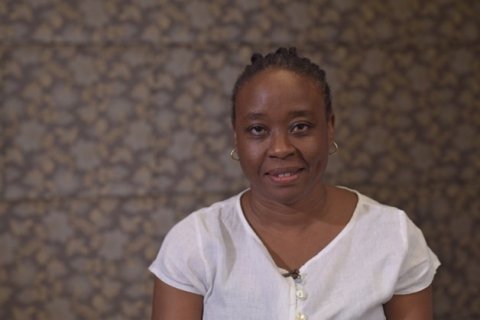
Iruka N Okeke is Professor of Pharmaceutical Microbiology and a Calestous Juma Science Leadership Fellow at the University of Ibadan, Nigeria. She is a Fellow of the Nigerian and African Academies of Science. Her research group uses microbiology, genetic and genomic methods to investigate the mechanisms bacteria use to colonize humans, cause disease and gain drug resistance. She also studies, laboratory practice in Africa and contributes to collaborative genomic surveillance for antimicrobial resistance. Iruka received B.Pharm., M.Sc. and Ph.D. degrees from Obafemi Awolowo University (formerly University of Ife), Nigeria and post-doctoral training at the University of Maryland, USA and Uppsala Universitet, Sweden. She has held Fulbright, International Federation for Science, Branco Weiss (Society-in-Science), Institute for Advanced Studies (Berlin) and MRC African Research Leader fellowships as well as academic positions in Nigeria, the UK and the USA. Iruka is author/ co-author of several scientific articles and chapters as well as the books Divining Without Seeds: The case for strengthening laboratory medicine in Africa (Cornell Univ Press) and Genetics: Genes, Genomes and Evolution (Oxford Univ Press). A teacher, scholar, she has mentored over a hundred research students, the majority of whom continue to work in science and health.
Dr. Pilar Donado-Godoy
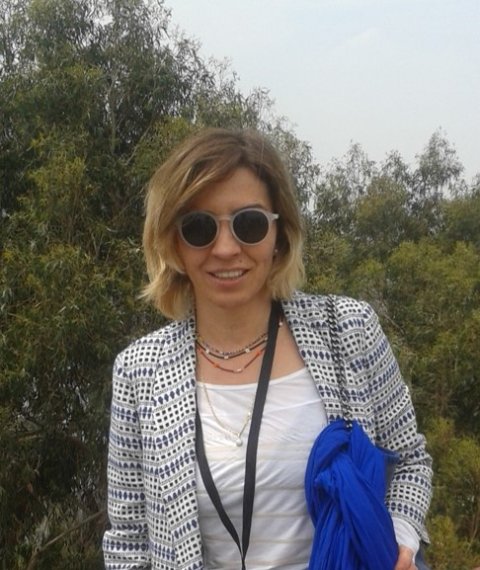
Dr. Pilar Donado-Godoy, Senior Researcher of the Colombian Corporation of Agricultural Research, AGROSAVIASenior Researcher of the Colombian Corporation of Agricultural Research, AGROSAVIA is a Public Health veterinarian and epidemiologist. Founder of the Colombian Programme for Integrated Surveillance of Antimicrobial Resistance, COIPARS - an international network to establish the baselines for Antimicrobial Resistance of zoonotic bacteria. Since 2018 she has been leading the Global Health Research Unit (GHRU) in Colombia with the support of an international consortium headed by the Centre for genomic Pathogen Surveillance -UK. She was invited to participate in the international animal health and welfare group of McDonald's Corporation (from 2013 to 2015) and to integrate the Global Advisory Group on Integrated Surveillance of Antimicrobial Resistance (AGISAR) of the World Health Organization (WHO) until 2019. Dr. Donado has conducted numerous interdisciplinary public health and food safety research projects focusing on Antimicrobial Resistance and molecular epidemiology based on the "One Health" approach, mainly in zoonotic and ESKAPE bacteria. In addition, her research has involved large-scale animal production systems, including dairy and beef cattle, swine, and poultry industries. The overall goal of Dr. Donado's research program is to ensure food safety and economic interaction between food supply, environment, and human-animal health with a reduced risk of transmission of antimicrobial resistance and zoonotic diseases to the general population.
Dr Silvia Argimon

Dr Silvia Argimon is a Genomic Epidemiology Lead at the Centre for Genomic Pathogen Surveillance, Big Data Institute, University of Oxford, UK, where she analyses population level pathogen genome sequences in the context of global surveillance of antimicrobial resistance (AMR) and informs the development of tools for pathogen surveillance in public health. Her work also focuses on capacity building for the implementation of whole-genome sequencing for surveillance of AMR in low- and middle-income countries through collaborations in Asia, Africa and South America. Dr Silvia Argimon holds a degree in Biology from the University of Buenos Aires, Argentina, and a PhD in Molecular Biology from the University of Aberdeen, UK.
Dr Anthony Underwood

Dr Anthony Underwood studied Microbiology at Bristol University as an undergraduate and molecular infectious disease whilst studying for a PhD at Oxford University. After studying the molecular basis for disease in parasitic worms that cause filariasis at the Liverpool School of Tropical Medicine, he switched career tracks by becoming an earlier adopter of bioinformatics in the field of infectious public health at the UK Health Protection Agency, now UKHSA. He continued to focus on applying best practices in computational biology to pathogens, translating them to production-ready processes for routine microbiology. This led to leading a team of bioinformatics and software engineers in Public Health England to process and interpret genome sequencing data from a wide range of bacterial and viral pathogens. Subsequently he became the bioinformatics implementation manager for the NIHR-funded global health research unit in antimicrobial resistance surveillance. Working with international partners in the Philippines, India, Nigeria and Colombia, they together built processes to implement reproducible bioinformatics for infectious disease. He is now the Head of Bioinformatics at Broken String Bioscience, a company dedicated to unlocking the next wave of genome editing therapies by measuring the stability of the genome
Professor Ravi Kumar
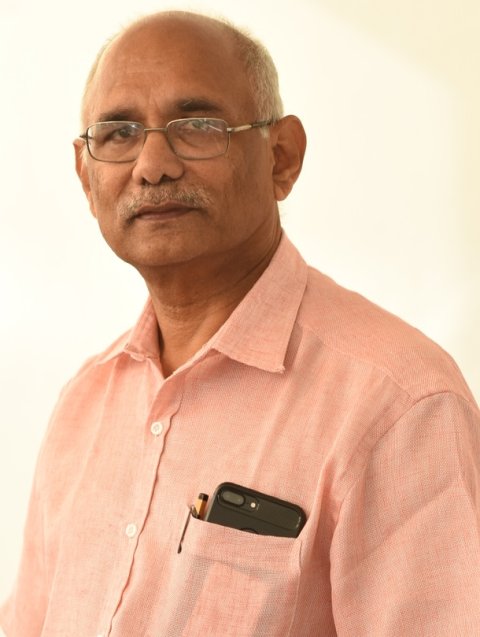
Dr. K L Ravi Kumar is associated with KIMS, Bangalore for 4 decades. He has served in various administrative positions at the institute and university. His fields of interest are Pneumococcal vaccine immunogenicity evaluation, antimicrobial resistance, HIV, and Mycobacterial diseases. Postdocs, PhDs, and MD students are mentored by him.
Currently, he heads the central research laboratory which is engaged in research work related to socially relevant infectious diseases. CRL has established a network of 75+ laboratories and hospitals across India for research collaboration. Various molecular methods, including Microarray, PCRSeq Typing, and FAF-mPCR are developed under the supervision of Prof. Ravikumar. His research works are published in National and International peer-reviewed journals.
Professor David Aanensen

Professor David Aanensen is the Director of the Centre for Genomic Pathogen Surveillance (CGPS), based at the Big Data Institute, University of Oxford. The CGPS brings together expertise in data modeling, software development, epidemiology, bioinformatics, machine learning, genomic technology, Good Financial Grant Practice (GFGP), training and capacity building.
Within the CGPS, David and his team focus on data flow and the use of genome sequencing for surveillance of microbial pathogens through a combination of web application and software engineering, methods development and large-scale structured pathogen surveys and sequencing of microbes with delivery of information for decision making.
Working with major public health agencies such as the US CDC, the European CDC, Public Health England and the WHO, systems are utilised to interpret and aid decision making for infection control. David is also Director of the NIHR funded Global Health Research Unit on Genomic Surveillance of Antimicrobial Resistance (AMR) working with partners leading National AMR strategies in The Phillipines, Colombia, Nigeria and India to implement genomic surveillance and linking to routine phenotypic and epidemiological data for priority pathogens.
Dr Monica Abrudan
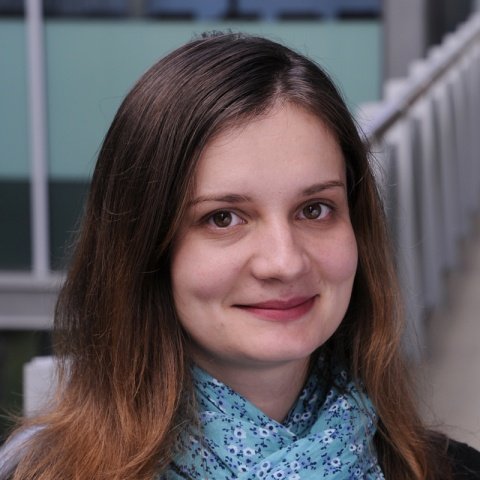
Monica is the Training Development Lead in the Centre for Genomic Pathogen Surveillance (CGPS), at University of Oxford, and was previously a postdoctoral scientist in the same team, where she studied the emergence and spread of high-risk bacteria, through bioinformatic analyses of genomic data and modelling. As part of her work in CGPS, Monica has analysed thousands of bacterial genomes from European structured surveys and other global collections. During her PhD in Microbial ecology at the University of Manchester, Monica studied bacterial warfare through toxins secretion in populations of Streptococcus pneumoniae isolated from Dutch nurseries and Streptomycetes isolated from soil.
Monica is passionate about training others Bioinformatics and programming and she was a mentor in the EMBL-EBI Bioinformatics Summer School in 2019, 2020 and 2021, where she taught groups of researchers and medics the technical aspects of exploring genetic variation in human populations. Also, Monica was a course instructor on the Wellcome Connecting Science and CGPS joint course: Train the Trainer: Capacity building for genomic surveillance of AMR in October 2019.
Harry Harste

Harry is the Head of Operations & Implementation for the Centre for Genomic Pathogen Surveillance (CGPS), based at the Big Data Institute, University of Oxford. The CGPS brings together expertise in data modeling, software development, epidemiology, bioinformatics, machine learning, genomic technology, Good Financial Grant Practice (GFGP), training and capacity building.
Within the CGPS, Harry manages the Centre's organisational operations, overseeing projects and partnerships in Europe, Africa, Asia, and Latin America, working with a wide range of national and international stakeholders such as the UK National Institute for Health Research, International Vaccine Institute, and the US Centers for Disease Control and Prevention.
Harry is passionate about supporting the development of institutional capacity across the global health and international development sectors and is the Finance Implementation Lead for the NIHR funded Global Health Research Unit on Genomic Surveillance of Antimicrobial Resistance (AMR), working with partners in The Philippines, Colombia, Nigeria and India to develop financial, grant management and operational capacity using the Good Financial Grant Practice (GFGP) international standard.
Harry has extensive experience in financial, operational, and grant management having worked across both the not-for-profit and commercial sectors, and holds a degree in Economics from the University of Birmingham, UK, plus trained as a Chartered Accountant with Grant Thornton UK LLP.
Mihir Kekre
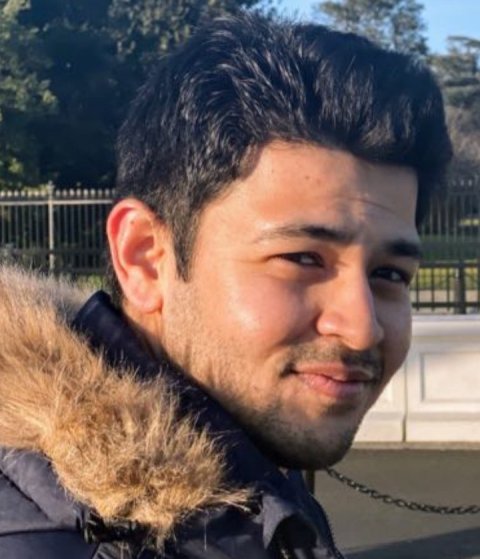
Mihir Kekre (former CGPS and GHRU ) is now Commercial Partnerships Manager at Tropic Biosciences, an agribiotech start-up focussed on addressing the needs of the tropical agricultural industry and food security globally. He specialises in corporate client success, scientific partnerships and product delivery support across academic research, not-for-profit entities and the corporate sector.
Mihir’s time at the Centre for Genomic Pathogen Surveillance involved building turnkey laboratory strategies and solutions at scale to facilitate rapid AMR surveillance through global collaborative networks, with a focus on establishing capacity in next-generation genome sequencing across Africa, South America and South-East Asia.